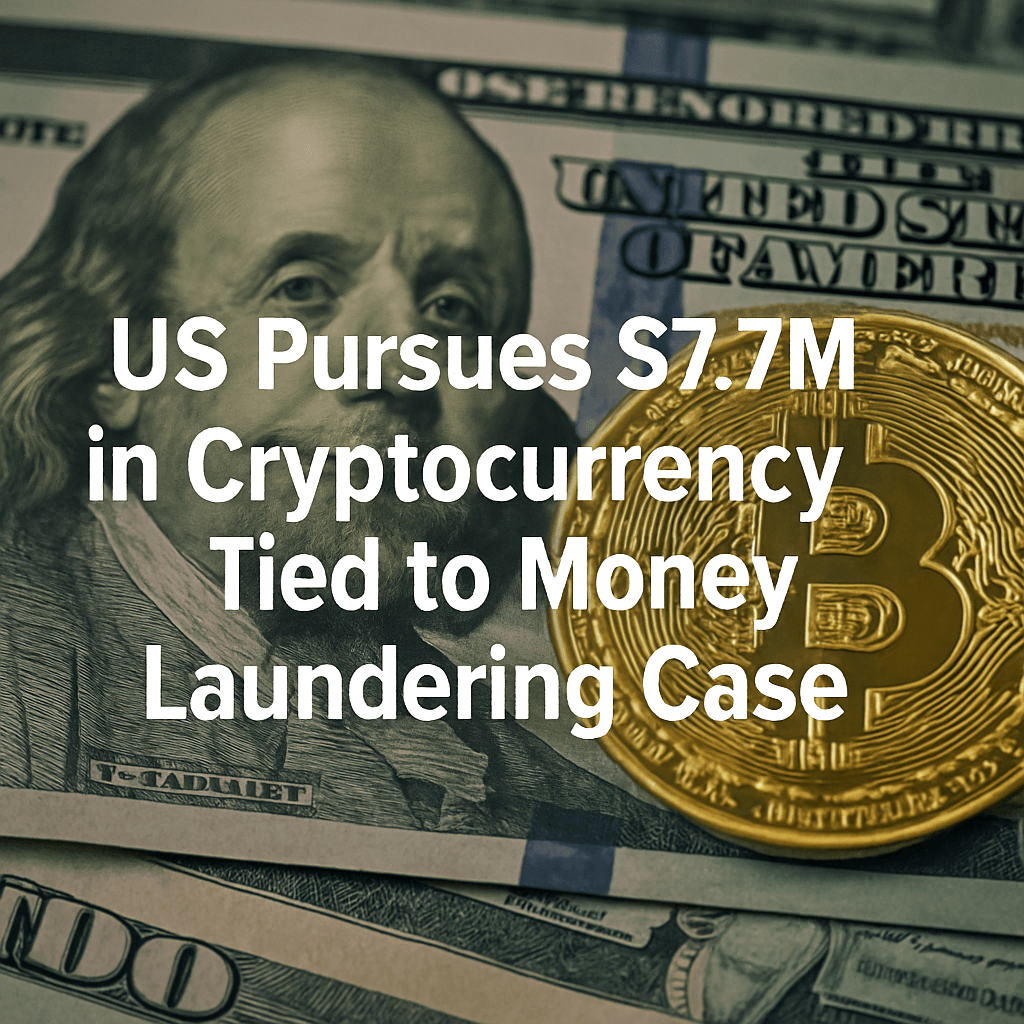US Pursues $7.7M in Cryptocurrency Tied to Money Laundering Case


The United States Justice Department has initiated a civil forfeiture complaint seeking to recover approximately $7.7 million in cryptocurrency and non-fungible tokens (NFTs) that are allegedly connected to a sophisticated money laundering operation spearheaded by North Korean actors posing as IT workers.
Background on North Korean Cyber Operations
North Korea has been increasingly utilizing cyber capabilities to bolster its economy, which has faced severe global sanctions. The regime has been known to deploy hackers to conduct various types of cybercrimes, including but not limited to ransomware attacks and cryptocurrency theft. One of the prominent groups linked to these activities is the Lazarus Group, which is believed to have connections to the North Korean government.
Details of the Allegations
The Justice Department’s complaint outlines a scheme where North Korean operatives, under the guise of legitimate employment, engaged in various IT-related activities to launder funds. The investigation reportedly traced the movement of digital assets through complex blockchain transactions designed to obfuscate the origins and destinations of the funds.
Technical Aspects of the Scheme
The identified laundering methods employed by the perpetrators involved:
- Mixing Services: These services combine multiple transactions from various users, making it nearly impossible to trace any specific funds back to their original source.
- Chain Hopping: This technique involves transferring assets between different blockchain networks (e.g., Ethereum to Bitcoin), thereby adding additional layers of complexity to tracking efforts.
- Use of Privacy Coins: Some transactions may have involved cryptocurrencies designed for increased privacy, such as Monero and ZCash, which provide enhanced anonymity for users.
Legal Framework and Implications
This civil forfeiture action forms part of broader international efforts targeting illicit financial activities associated with North Korea. Under US law, civil asset forfeiture allows the government to seize assets believed to be connected to criminal activity without necessarily charging individuals with a crime. This legal approach has been increasingly applied in cases involving digital currencies due to their decentralized and pseudonymous nature.
This case underscores the challenge law enforcement faces when trying to track and regulate cryptocurrency transactions linked to state-sponsored cybercrime.
Global Response to North Korea’s Cyber Tactics
In response to North Korea’s continued cyber operations, several countries and international organizations have ramped up sanctions and regulatory measures. In July 2023, the G7 nations issued a joint statement condemning the regime’s cyber activities and calling for enhanced cooperation in cybersecurity efforts worldwide. This includes sharing intelligence that could help disrupt North Korean funding channels.
Future Outlook and Challenges
The usage of cryptocurrency as a tool for evading sanctions poses ongoing challenges for governments and financial institutions. As blockchain technology evolves, so too do the methods employed by those with illicit intent. Experts in cybersecurity stress the need for advanced analysis tools and collaboration between nations to effectively combat these activities. Furthermore, as the cryptocurrency ecosystem grows, regulatory frameworks will likely adapt to address the complexities posed by digital asset security and tracking.
As this case develops, it will likely serve as a notable precedent for how law enforcement approaches similar situations moving forward, especially considering the increasing integration of digital currencies into both economic and criminal spheres.